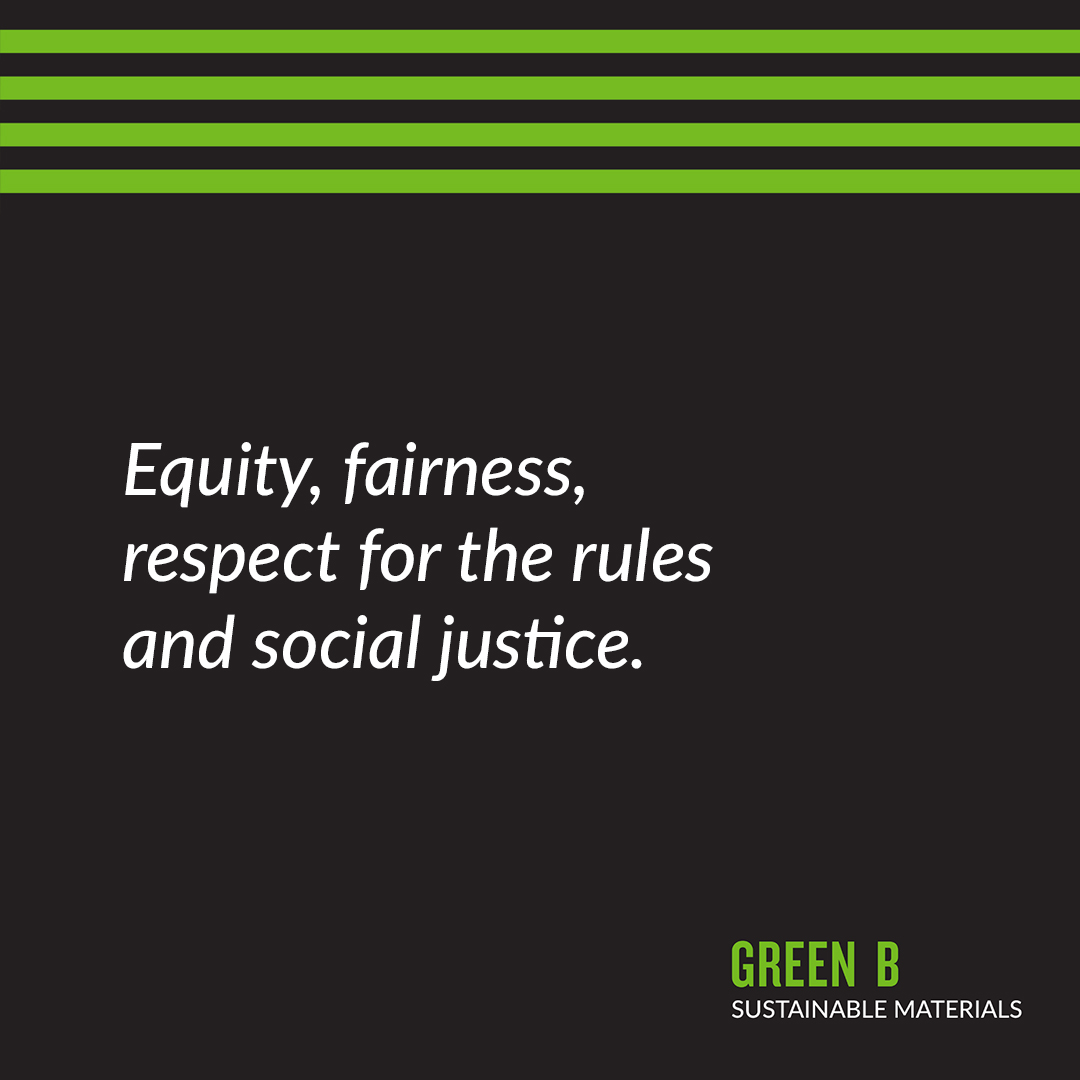Free shipping on orders over £120
The organic cotton we use for Sisley products comes from non-genetically modified (GMO) plants and is grown according to organic farming principles without the use of chemical fertilizers and pesticides. In 2024, organic cotton represented 14% of the cotton used. Our Green B garments contain at least 50% organic cotton.
PRODUCTS IN ORGANIC COTTONOur recycled cotton comes from pre- and post-consumer cotton waste. Once collected, the waste is sorted, shredded into small pieces, frayed, and reused for new yarn production. All our garments made with recycled cotton contain at least 20% recycled cotton from certified supply chains.
PRODUCTS IN RECYCLED COTTON
Benetton Group bans the use of cotton from Uzbekistan, Pakistan, and the Xinjiang region in China—areas where forced or child labor practices have been reported. All suppliers working for Benetton Group are committed to not using and/or purchasing cotton grown in these regions. Benetton Group firmly rejects all forms of child or forced labor across its entire value chain.
Soft as silk and strong as cotton, viscose is an artificial fiber of natural origin, derived from wood pulp.
The viscoses used in
Green B garments come from globally recognized suppliers for their commitment to forest conservation and responsible sourcing policies, transparency, and traceability. Thanks to their work and the digital tools they provide, we can directly verify the origin of our fabrics.
For more information:
lenzingtm ecoverotm
tenceltm
livabybirlacellulose.com
Low environmental impact and controlled supply chain also for
modal and
lyocell: lyocell, which feels very similar to cotton, is produced in a closed-loop process that recovers and reuses over 99% of the solvent used, reducing water use and environmental discharge.
are certified by competent authorities.
Comfortable, durable, elegant.
Extremely cool in summer, it has thermoregulating properties and absorbs moisture: a noble material, because it is natural and hypoallergenic, requiring significantly less water for cultivation than other fibers and almost no use of chemicals.
Our linen garments are made to last.
The linen used in Green B garments is grown in Europe, learn more: allianceflaxlinenhemp.eu
In 2020, we started a journey that includes the use of
recycled polyester in Sisley down jackets.
Polyester is one of the most widely used synthetic fibers in the textile sector and can be processed alone or blended with other synthetic or natural fibers. It represents over half of the total volume of fibers produced globally, yet only a small portion is recycled.
Recycled polyester is made from waste derived from petroleum-based products, such as PET bottles: thus reusing existing materials and reducing waste and residues.
Sisley has chosen to promote in its collections fabrics that contain at least 20% recycled polyester from certified supply chains, which ensure that the polyester comes from production waste or materials that would otherwise end up in landfills.
OUR SUPPLIERS
Equity, fairness, respect for the rules and social justice..
The choice of our suppliers is based not only on the criteria of quality and competitiveness of the products offered along with transparency, but also on compliance with social, ethical and environmental principles.


Anyone who has a business relationship with Benetton Group must comply with our Code of Conduct, which is based on respect for human rights and environmental protection.
The Code of Conduct puts into practice the most relevant international regulations, with particular reference to the UN Guidelines on Business and Human Rights from June 2011, as well as the European Commission Communication on a renewed strategy on corporate social responsibility from October 2011.
The Group has implemented an audit program to verify that the Code of Conduct is being followed, which involves all manufacturers of finished garments, with particular attention to those located in areas where respect for human and worker’s rights are considered to be most at risk. Each supplier will be subject to announced or semi-announced periodic checks.


In 2023, for the fifth consecutive year, Fashion Transparency Index attests that we are among the clothing brands and retailers that are most committed to disseminating credible information about their supply chain and their social and environmental impact.
The company’s efforts to become more transparent have brought concrete results that have allowed us to improve our overall score from 62% in 2022 to 73% in 2023.
Being a member of organizations that support sustainable production globally is a choice to strengthen our commitment to the environment and humanity.
THE GROUP IS A MEMBER OF:
Sustainable Apparel Coalition (apparelcoalition.org)
The Sustainable Apparel Coalition (SAC) includes 300 brands, footwear and fabrics, retailers, producers, purchasers, suppliers, associations, non-profits and academic institutions – all working for a shared vision of an industry which gives back more than it takes from the planet and from its people.
Site: apparelcoalition.org
Better Cotton Initiative (bettercotton.org)
Since 2017, Sisley (Benetton Group brand) has been a member of Better Cotton, the biggest cotton sustainability program in the world. The mission behind Better Cotton is to help the cotton community both survive and prosper, protecting and restoring the environment. Farmers participating in the program are trained on how to minimize the use of fertilizers and pesticides, using water and soil sustainably.
Site: bettercotton.org/
Textile Exchange (textileexchange.org)
Textile Exchange is a global non-profit organization that promotes a positive impact on the climate and on nature in the fashion and textile sector. It guides and supports the textile industry, committed to combatting climate change by means of a more responsible production starting with the first steps of the supply chain.
Site: textileexchange.org
ZDHC (roadmaptozero.com)
ZDHC is a multi-stakeholder organization which has over 320 endorsers from across the sector, including brands, suppliers, solution providers and chemical product developers.
The Roadmap to Zero Program by ZDHC leads the fashion industry towards the elimination of harmful chemical substances from the global supply chain, providing the foundation for a more sustainable production in order to protect workers, consumers and our planet’s eco-system.
Site: roadmaptozero.com
United Nations Global Compact (unglobalcompact.org)
UNCP is the largest global initiative for corporate sustainability. It’s a call upon companies to get on the same page in terms of strategies and operations with universal principles regarding human rights, work, environment and combatting corruption while undertaking actions to promote social objectives.
Site: unglobalcompact.org

Benetton Grouphas been collaborating with the Greenpeace Detox program since 2013, in a combined effort to completely eliminate harmful chemical substances from the textile sector with the scope of protecting the health and safety of consumers and safeguarding local community conditions all around the world.
We are committed to reducing the environmental impact of wet processes on the supply chain. In order to reach this objective, Sisley aims to reduce, among other things, the use of harmful chemical substances for our health and for the environment through production processes. In particular, it strives to guarantee supplier conformity in wet processes from the ZDHC MRSL program by 2030.

ECO-FRIENDLY LOGISTICS AND PACKAGING
In recent years, we have, where possible, replaced freight transport by air with low-polluting transport by sea and rail. Thanks to the elimination of pallets, we have optimized the packaging storage on our vehicles, eliminating 1 in 5 trucks needed to transport our goods via roads through Italy and Europe.
When you purchase a Sisley garment you should know that the path it took had the lowest possible polluting impact.
Packagingis a key element for reducing environmental impact.
The packaging and materials used to ship our products are in line with the Benetton Group's sustainable approach.
We pay particular attention to each purchase to guarantee safe and 100% plastic-free packaging: from the cardboard used for shipping the adult collections, to the tissue used to wrap the clothing items, to the adhesive tape chosen to seal the package, all the materials used are 100% recyclable.
Sisley's packagingis processed using exclusively water-based inks and comes from an FSC (Forest Stewardship Council) certified paper mill. .


